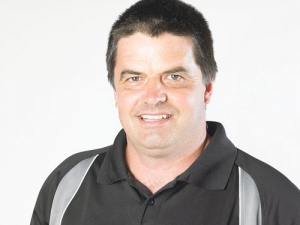State of the Dairy Nation 2024/25: DairyNZ Highlights Record Milk Production and Export Growth
DairyNZ's chief executive Campbell Parker says the 2024/25 dairy season reinforces the importance of the dairy sector to New Zealand.
 Richard Kyte, DairyNZ says the very cold temperatures an continued rain has resulted in poor pasture growth rates.
Richard Kyte, DairyNZ says the very cold temperatures an continued rain has resulted in poor pasture growth rates.
A cold wet winter and the low payout is a disaster for Southland dairy farmers, says DairyNZ.
The average loss on the region’s farms will be $360,000; some will lose even more.
DairyNZ’S Richard Kyte told Dairy News the wet winter contributed to poor utilisation of crops, and cows have lower body condition scores than normal at this time of the year.
“The very cold temperatures and continued rain has resulted in poor pasture growth rates so average pasture covers have typically been lower than normal. This was also due to the poor growing conditions last season so we don’t have large amounts of supplements on hand such as silage and baleage,” he says
Kyte says feed is short in the region, a problem compounded by drought last season in Otago and North Canterbury; extra supplies of baleage and silage are almost non-existent.
“Obviously we need growth rates to pick up to turn things around. Farmers are struggling to maintain pasture in good condition in the wet weather. They are using such strategies as standing cows off to try to prevent pugging; overall the difficult conditions are taking their toll on people and animals.”
Kyte says it’s been among the wettest seasons he’s experienced. Though last spring was wet, a patch of fine weather enabled pastures to grow; but not this season, so all farmers are in a tight situation.
Some farmers are using PKE, but in this wet they need the right infrastructure on their farms to avoid damaging pastures.
“In terms of fertiliser, we have probably reached the point where it is ok to go with nitrogen. But most of what’s going on is being flown by helicopters to avoid damaging pastures.”
The cow cull is carrying on from where it left off in autumn and Kyte says it’s clear farmers are not holding onto any ‘passenger cows’; delays at the works are not helping.
Farmers are seeking advice on budgets and DairyNZ is advising on possible system changes. Southland farmers are getting on with the job but there is not a lot to smile about, Kyte says.
Appeal for feed
Federated Farmers Southland president Allan Baird is appealing for anyone in the lower South Island with supplements surplus to requirements to tell Feds or their stock and station agents.
He says the situation for Southland dairy farmers is very tight with poor pasture growth rates.
“I’m appealing to anyone – including people on lifestyle blocks – who may have a spare bale or two of silage to let me know. While this may not feed a mob of cows it may when added to other supplements make a difference for some dairy farmers.”
Allan Baird, himself a dairy farmer, has noticed that once people get back to second round on their farms the growth rate is quite low. After a few fine days the growth picks up but the ongoing cold wet snap is making it tough.
The Meat Industry Association of New Zealand (MIA) today announced that Chief Executive Officer Sirma Karapeeva has resigned from the role.
The winners of the 2026 Hawke’s Bay/Wairarapa Dairy Industry Awards were announced at the annual awards dinner held at Copthorne Solway Park in Masterton on Thursday evening.
Environment Southland is welcoming this week’s decision by the Environmental Protection Authority (EPA) to approve the release of Blaptea elguetai, a leaf‑feeding beetle that will help control the highly invasive Chilean flame creeper.
This March, the potato industry is proudly celebrating International Women’s Day on 8 March alongside the International Year of the Woman Farmer, recognising the vital role women play across every part of the sector — from paddocks and packhouses to research, leadership, and innovation.
Fruit trader Seeka posted a record profit and returns to shareholders in 2025.
Recent weather events in the Bay of Plenty, Gisborne/Tairawhiti, and Canterbury have been declared a medium-scale adverse event.
OPINION: Staying with politics, with less than nine months to go before the general elections, there’s confusion in the Labour…
OPINION: Winston Peters' tirade against the free trade deal stitched with India may not be all political posturing by the…